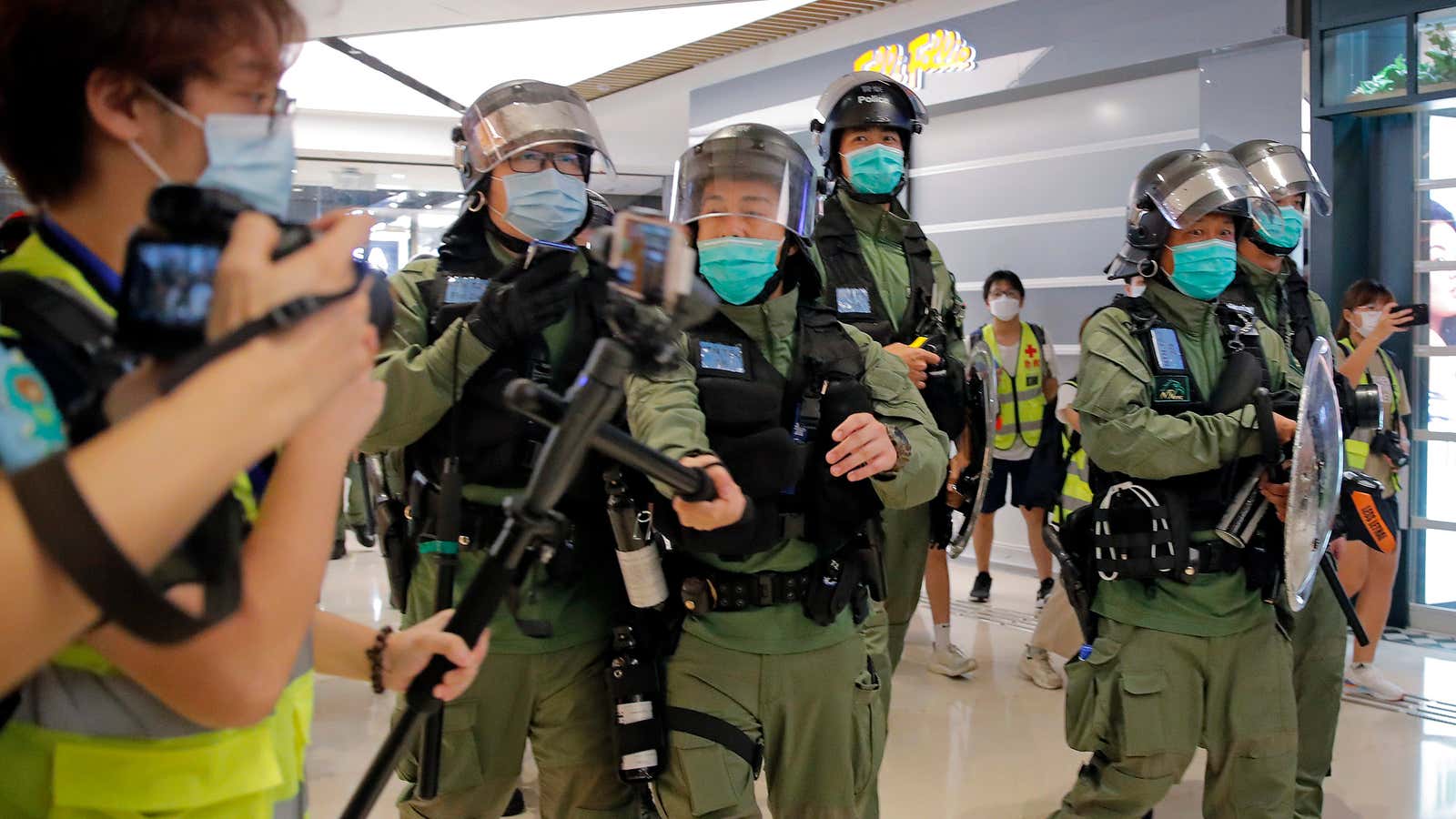It didn’t take long for authoritarianism to arrive in Hong Kong after China took its largest step toward annexing the island territory since the United Kingdom ceded control in 1997. Now, the fear is palpable—citizens are comparing the air of repression to the cultural revolution, and professors are being fired from universities for advocating democracy.
In response, the White House has taken steps to levy sanctions against figures on the island who backed China’s move, but it’s not clear US officials will rescind the special economic privileges that have made Hong Kong an entrepôt to Chinese markets for decades. The damage to US companies profiting from the China trade could make that a step too far for president Donald Trump.
There is something to be done that would undermine Beijing’s push against freedom and boost the US economy, too: Open American borders to political refugees from Hong Kong. Other nations are offering to take in refugees, though some Hong Kongers may wish to remain in their home or lack the means to escape Chinese control. Unfortunately, making good on such an idea contradicts much of Trump’s worldview.
So far, the White House has called for the US to reallocate the existing refugee quota towards Hong Kong. But, beyond creating a zero-sum game that will leave other deserving refugees in dire straits, advocates for foreigners seeking safety in the US say this will have little effect. Trump has already cut the number of refugees admitted to the US significantly; 2018, the last year for which complete data has been released, was the lowest in nearly three decades. In the current fiscal year, the US has admitted only about 8,000 refugees.
As well as limiting the top-line number below any modern administration, Trump’s team has also taken a number of steps to further prevent refugees from immigrating: It is barring refugee claims from people who transit third countries on the way the US, it has tightened its definitions of prosecution to deny more refugee claims, and furloughed officers and closed offices that handle the arduous vetting process for potential refugees.
The hatred driving these choices is well-documented. Historically, however, the US has consistently used special refugee status as a soft-power tool. It attempted to rectify foreign policy blunders by encouraging refugees from southeast Asia after the Vietnam war or, with less alacrity, from Iraq and Afghanistan in the wake of US occupations in those countries. It also welcomed Soviet Jews and Cubans as way to undermine socialist regimes without warfare.
At the moment, US lawmakers from both parties are backing a bill that would given Hong Kong residents priority status as refugees, but it’s not clear when it will come up for a vote or if president Trump would sign it. These programs haven’t always been popular, and sometimes outlast their effectiveness. The Cuban exception grew over the decades from an outlet for dissidents to an obstacle to normal relations. But they offer succor to prosecuted communities and allow for back-channel relations with the polity in question.
As important to Americans, new immigrants are a boon to the economy. Research consistently demonstrates migrants lead to more economic growth in the long term, particularly in the second generation. Amazon founder Jeff Bezos was in the hot seat yesterday because his giant company may have accumulated too much power, but the origin story he highlighted—the son of a Cuban refugee turned world’s richest man—is a reminder of the disproportionate economic impact immigrants bring to the US.
Even Trump’s own economists admitted in their last budget request that the falling population growth in the US will lead to less growth in the decades ahead, straining the ability of the US economy to sustain its aging population. Letting in more people is already critical to future American prosperity; letting in more people fleeing abuse could help rebuild the America’s shattered global image.
Correction: An earlier version of this story erroneously said that Hong Kong was handed over to China from Britain in 1998. It was 1997.
